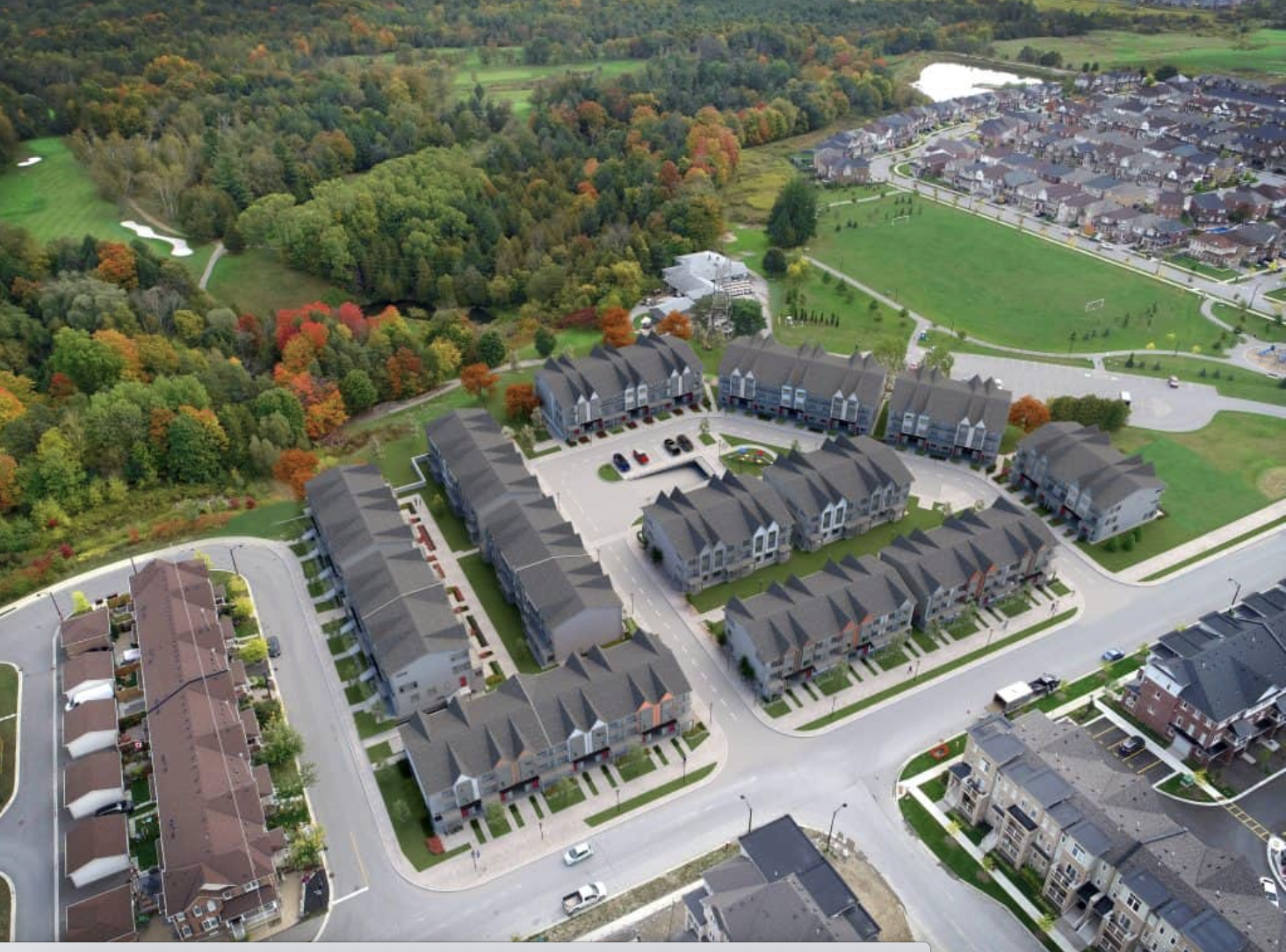In Ontario, the Residential Tenancies Act (RTA) is the body of legislation that governs the relationship between Landlords and Tenants. The RTA outlines the rights and responsibilities of both Landlords and Tenants and provides a framework for resolving disputes.
From a Landlord perspective, knowing and applying the RTA should be considered mandatory learning, same as having a license to drive a car. Housing Providers (aka Landlords) play such an important role in the stability of our society, yet it’s surprising how many Landlords make no effort to study and apply the tenancy laws. In our opinion, being a Housing Provider is a privilege and a tremendous opportunity, but it does come with a responsibility and obligation to do it correctly.
From a Tenant perspective, knowledge of the RTA is also important, as it provides clarity on Tenant rights, responsibilities and obligations. Tenants should understand that the Landlord-Tenant relationship is a two-way street. In Economic terms, it’s an exchange between parties that must be mutually beneficial and equal in order for the system to work.
So, what do you need to know about the RTA?
You need to know the clauses that are the most relevant, in terms of the day-to-day Landlord-Tenant relationship, so that both parties act correctly (according to the law). Simply doing this will avoid 99% of the friction between Landlords and Tenants.
You also need to be aware of the most relevant clauses, so that you can recognize any misinterpretation or misrepresentation of the RTA, whether you’re a Landlord or a Tenant (eg. the correct N12 process, which is handled incorrectly most of the time).
The RTA is quite lengthy and can be a little tedious to read, so I’ve highlighted some of the most relevant clauses below. It’s still worth taking the time to read through the whole RTA to understand the scope of the legislation. I’ve included a link to the RTA document at the bottom of the article:
Part 2 – Tenancy Agreements
12(2) – Copy of Tenancy Agreement
The Landlord must give a copy of the signed Lease Agreement to the Tenant within 21 days of signing.
14 – “No Pet” provisions Void
Any provision within the Lease Agreement that prohibits the presence of animals in a rental unit is void.
Part 3 – Responsibilities of Landlords
20(1) – Landlord’s responsibility to repair
A landlord is responsible for providing and maintaining a residential complex, including the rental units in it, in a good state of repair and fit for habitation and for complying with health, safety, housing and maintenance standards.
21(1) – Landlord’s responsibility re services
A landlord cannot withhold vital services (e.g. Water, Hydro, Heat) during a Tenant’s occupancy of a rental unit.
22 – Landlord not to interfere with reasonable enjoyment
A landlord shall not at any time during a tenant’s occupancy of a rental unit and before the day on which an order evicting the tenant is executed substantially interfere with the reasonable enjoyment of the rental unit or the residential complex in which it is located for all usual purposes by a tenant or members of his or her household.
23 – Landlord not to harass, etc.
A landlord shall not harass, obstruct, coerce, threaten or interfere with a tenant.
24 – Changing Locks
A landlord shall not alter the locking system on a door giving entry to a rental unit or residential complex or cause the locking system to be altered during the tenant’s occupancy of the rental unit without giving the tenant replacement keys.
26(1) – Entry without Notice, emergency, consent
A landlord may enter a rental unit at any time without written notice,
(a) in cases of emergency; or
(b) if the tenant consents to the entry at the time of entry.
26(3) – Landlord to show rental unit to prospective Tenants
A landlord may enter the rental unit without written notice to show the unit to prospective tenants if,
(a) the landlord and tenant have agreed that the tenancy will be terminated or one of them has given notice of termination to the other;
(b) the landlord enters the unit between the hours of 8 a.m. and 8 p.m.; and
(c) before entering, the landlord informs or makes a reasonable effort to inform the tenant of the intention to do so.
27 (1, 2, 3) – Entry with Notice
A landlord may enter a rental unit in accordance with written notice given to the tenant at least 24 hours before the time of entry under the following circumstances:
- To carry out a repair or replacement or do work in the rental unit.
- To allow a potential mortgagee or insurer of the residential complex to view the rental unit.
- To allow a person who holds a certificate of authorization within the meaning of theProfessional Engineers Actor a certificate of practice within the meaning of the Architects Act or another qualified person to make a physical inspection of the rental unit to satisfy a requirement imposed under subsection 9 (4) of the Condominium Act, 1998.
- To carry out an inspection of the rental unit, if,
- the inspection is for the purpose of determining whether or not the rental unit is in a good state of repair and fit for habitation and complies with health, safety, housing and maintenance standards, consistent with the landlord’s obligations under subsection 20 (1) or section 161, and
- it is reasonable to carry out the inspection.
- For any other reasonable reason for entry specified in the tenancy agreement.
A landlord or, with the written authorization of a landlord, a broker or salesperson registered under the Trust in Real Estate Services Act, 2002, may enter a rental unit in accordance with written notice given to the tenant at least 24 hours before the time of entry to allow a potential purchaser to view the rental unit.
The written notice under subsection (1) or (2) shall specify the reason for entry, the day of entry and a time of entry between the hours of 8 a.m. and 8 p.m.
Part 4 – Responsibilities of Tenants
33 – Tenant’s responsibility for cleanliness
The tenant is responsible for ordinary cleanliness of the rental unit, except to the extent that the tenancy agreement requires the landlord to clean it.
34 – Tenant’s responsibility for repair of damage
The tenant is responsible for the repair of undue damage to the rental unit or residential complex caused by the wilful or negligent conduct of the tenant, another occupant of the rental unit or a person permitted in the residential complex by the tenant.
35 – Changing Locks
A tenant shall not alter the locking system on a door giving entry to a rental unit or residential complex or cause the locking system to be altered during the tenant’s occupancy of the rental unit without the consent of the landlord.
36 – Tenant not to harass, etc.
A tenant shall not harass, obstruct, coerce, threaten or interfere with a landlord.
Part 5 – Security of Tenure and Termination of Tenancies
37 – Termination only in accordance with the Act
This section covers the ways in which a tenancy can be terminated – either by Notice or by Agreement between the Landlord and Tenant. A couple of conditions:
When notice void
(4) A tenant’s notice to terminate a tenancy is void if it is given,
(a) at the time the tenancy agreement is entered into; or
(b) as a condition of entering into the tenancy agreement.
When agreement void
(5) An agreement between a landlord and tenant to terminate a tenancy is void if it is entered into,
(a) at the time the tenancy agreement is entered into; or
(b) as a condition of entering into the tenancy agreement.
38 – Deemed renewal where no notice
If the Tenant has not terminated the Lease in writing or the Landlord has not served a notice to terminate (which must be a N12 or an eviction order), then the Lease Agreement will renew automatically and remain in force.
48 (1, 2, 3, 4)– When a Landlord wishes to use the property for personal use
A landlord may, by notice, terminate a tenancy if the landlord in good faith requires possession of the rental unit for the purpose of residential occupation for a period of at least one year by,
(a) the landlord;
(b) the landlord’s spouse;
(c) a child or parent of the landlord or the landlord’s spouse; or
(d) a person who provides or will provide care services to the landlord, the landlord’s spouse, or a child or parent of the landlord or the landlord’s spouse, if the person receiving the care services resides or will reside in the building, related group of buildings, mobile home park or land lease community in which the rental unit is located.
The date for termination specified in the notice shall be at least 60 days after the notice is given and shall be the day a period of the tenancy ends or, where the tenancy is for a fixed term, the end of the term.
A tenant who receives notice of termination under subsection (1) may, at any time before the date specified in the notice, terminate the tenancy, effective on a specified date earlier than the date set out in the landlord’s notice.
The date for termination specified in the tenant’s notice shall be at least 10 days after the date the tenant’s notice is given.
48 (1) – Compensation for notice of eviction for personal use (N12)
A landlord shall compensate a tenant in an amount equal to one month’s rent or offer the tenant another rental unit acceptable to the tenant if the landlord gives the tenant a notice of termination of the tenancy under section 48.
62 – Termination for cause, damage
A landlord may give a tenant notice of termination of the tenancy if the tenant, another occupant of the rental unit or a person whom the tenant permits in the residential complex wilfully or negligently causes undue damage to the rental unit or the residential complex.
Notice
(2) A notice of termination under this section shall,
(a) provide a termination date not earlier than the 20th day after the notice is given;
(b) set out the grounds for termination; and
(c) require the tenant, within seven days,
(i) to repair the damaged property or pay to the landlord the reasonable costs of repairing the damaged property, or
(ii) to replace the damaged property or pay to the landlord the reasonable costs of replacing the damaged property, if it is not reasonable to repair the damaged property.
64 – Termination for cause, reasonable enjoyment
A landlord may give a tenant notice of termination of the tenancy if the conduct of the tenant, another occupant of the rental unit or a person permitted in the residential complex by the tenant is such that it substantially interferes with the reasonable enjoyment of the residential complex for all usual purposes by the landlord or another tenant or substantially interferes with another lawful right, privilege or interest of the landlord or another tenant. 2006, c. 17, s. 64 (1).
Notice
(2) A notice of termination under subsection (1) shall,
(a) provide a termination date not earlier than the 20th day after the notice is given;
(b) set out the grounds for termination; and
(c) require the tenant, within seven days, to stop the conduct or activity or correct the omission set out in the notice. 2006, c. 17, s. 64 (2).
For more information on the Residential Tenancies Act:





